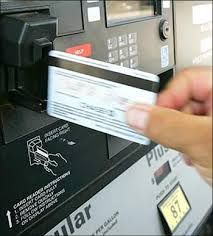 The Reserve Bank of India is reportedly not keen on accepting banks’ demand to increase the interchange fee, the amount one bank charges another if its consumer uses the automated teller machine of the non-home bank.
The Reserve Bank of India is reportedly not keen on accepting banks’ demand to increase the interchange fee, the amount one bank charges another if its consumer uses the automated teller machine of the non-home bank.
“There is already a cap on ATM transactions.
"If we increase the fee further and based on it the banks also make changes on the amount they want to be passed on to the customer, it can hurt the customer further. As a result, the regulator is not very comfortable in revising the rates currently,” said a banker.
Currently, the fee is Rs 15 per financial transaction.
This has been recommended to be revised to Rs 16.50, plus service tax (12 per cent), taking the amount to Rs 18.48.
This is a fee the customer’s bank pays to the one that maintains the ATM.
The first three transactions at other ATMs are free and after this, the bank can choose to pass on the cost to the consumer.
But by RBI order, banks cannot charge consumers more than Rs 20.
Last month, RBI had permitted banks to charge customers for using home-bank ATMs for more than five transactions a month.
Till now, banks were only allowed to charge customers if they transacted in non-home bank ATMs more than five times in a month.
That cap has also been reduced to three in the six big cities of Mumbai, Delhi, Chennai, Kolkata, Bengaluru and Hyderabad.
Bankers said public sector lenders have been working to keep the interchange fee low; private sector banks had been lobbying for an increase.
This is because state-run banks are generally the issuer ones (which issue the card) and the private banks in most cases are the acquirer bank (the non-home bank ATM the consumer uses).
Another person familiar with the development said public sector lenders especially feel more changes should not be made in terms of fee revision.
“If more banks decide to pass on the increased cost to consumers, it might lead to more branch visits, something we fear might also happen after the changes made in the number of free transactions.
"This, in turn, will increase the costs to banks,” said another banker.
The demand for a rise in interchange fee started after banks came under pressure to strengthen security at ATMs after the attack on a woman in a Bengaluru one last year. Lenders complain the increased security will translate into increased cost and to stay profitable, the interchange fee should be increased.
HOLD ON. . . NOT NOW
- Interchange fee: The amount a bank charges the other bank, if the latter’s consumer/customer uses the ATM of the former, a non-home bank
- Rs 15: The fee per transaction banks are charged by another bank for use of the latter’s ATM facilities by the former’s customers
- Rs 16.50: The recommended revised interchange fee
- It is learnt RBI is not comfortable in revising the interchange fee soon
- The demand for a increase in interchange fee begun after banks came under pressure to beef up security at ATMs, after the brutal attack on a woman in a Bangalore ATM last year
The image is used for representational purpose only






